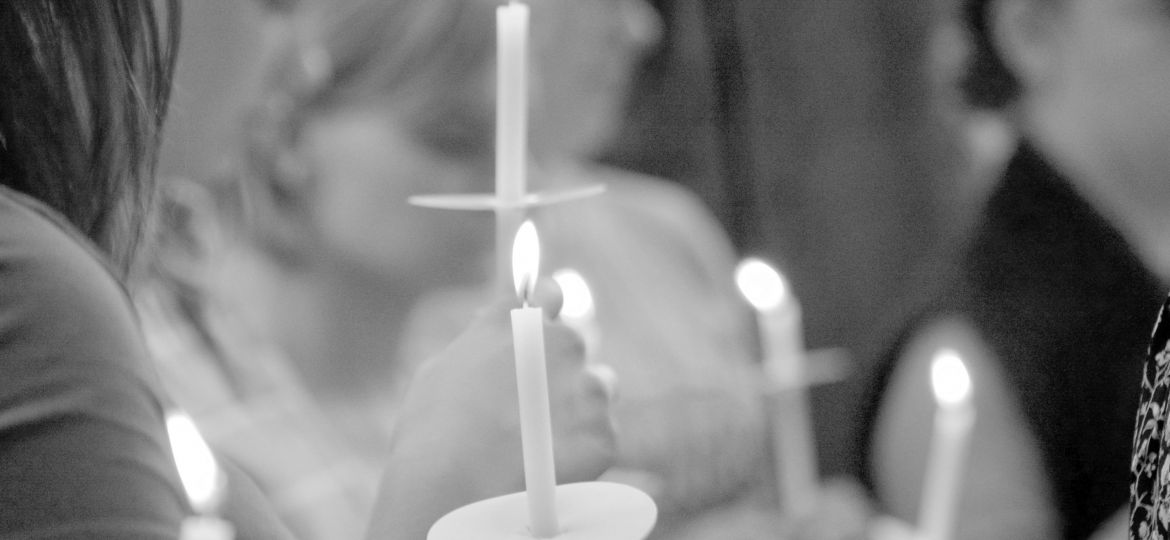
On Monday, Sept. 11 the St. Olaf Interfaith Coalition for Peace and Justice hosted a candlelight vigil in response to the white supremacist marches that took place this past August in Charlottesville, Va. The vigil was planned as an effort to mourn hateful ideologies and unite the St. Olaf community across all faiths and non-faiths, wel- coming all community members to a space dedicated to healing and unity.
This past summer several members of the Interfaith Coalition attended a confer- ence hosted by the Interfaith Youth Core. At the conference, students from colleges and universities across the country navigated interfaith dialogue and discussed the best ways to promote this connecting mode of thinking on different college campuses.
“The weekend we were at this conference was also the weekend when white supremacists marched in Charlottesville,” Interfaith Coalition member Sophia Spiegel ’19 said. “It was really impactful to be in this seemingly safe bubble of open-minded people who wanted to promote peace and justice, and then to turn on the TV and see that this was happening.”
“People from all different college campuses at this conference decided to draft a letter stating that hateful ideologies will not be tolerated. We [also] pledged to hold a candlelight vigil on Sept. 11, the same day that white supremacists planned to march on campuses across the country.”
Integral to the Coalition is the belief faith has something to offer the world, no matter the form it takes. Spiegel explained this includes all religions as well as secular belief systems such as atheism and agnosticism. The St. Olaf students followed up on the pledge they took at the conference and along with other interfaith groups nationwide, held a vigil under the wind chimes outside of Boe Chapel. Many students attended the vigil, gathering together to both share and listen to one another’s thoughts, select readings and experiences.
“The intention behind that pledge was to create a space for people to fully realize that some people on this campus feel less safe than other people. [It was] a space to express suffering, a space to express difference in a way that encourages rising out of that suffering,” Spiegel said.
Many students passed by the vigil and stopped to participate. Candles lit the area as the sun went down and apart from the student or community member sharing, all in attendance remained silent.
The Peace and Justice portion of the Coalition is particularly important to its members, and Spiegel emphasized that simply discussing faith is not substantial in the context of such a complex and hateful political environment.
“Faith and active faith and an accepting faith are all intertwined,” Spiegel said. “It’s not a faith that excludes other people, this is specifically faith that includes faith of all backgrounds into their own spectrums. We really wanted to make sure that people who don’t adhere to a particular religion can also participate.”
To this end, many students shared both religious and secular readings, ranging from poetry to prayers in Arabic. Spiegel sang and taught those in attendance a song called “How Could Anyone,” which she grew up hearing at her Unitarian Universalist Church. The song preaches self-love and empowerment, repeating “how could anyone ever tell you, you’re anything less than beautiful” throughout the chorus.
“I come from a background where secular texts are read in church services, and where secular and sacred are entirely fused together, which I haven’t seen on this campus much before.” Spiegel said. “To be able to treat something secular as sacred is so incredible.”

